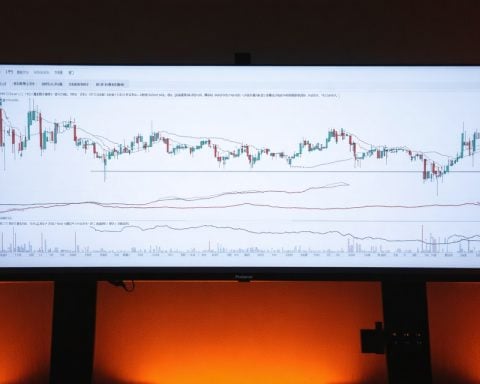Nate Anderson, the founder of Hindenburg Research, has announced the disbandment of the short-selling firm that gained notoriety for its critical reports on companies such as Nikola and Lordstown Motors. This decision signals a significant shift in the landscape of financial research and short-selling.
Hindenburg Research rose to prominence by challenging the credibility of various high-profile firms through allegations of fraud and misleading practices. Anderson’s firm was instrumental in exposing discrepancies in these companies, which often resulted in plummeting stock prices and intense public scrutiny.
In a recent statement, Anderson highlighted both the challenges and the successes of the firm, expressing appreciation for the impact Hindenburg had on market transparency. The decision to close comes amid ongoing debates regarding the ethical implications of short-selling and the backlash faced by firms involved in such practices.
As Hindenburg’s operations cease, the financial community will be left to grapple with the broader repercussions of this development. Investors and analysts alike are pondering the future of short-selling firms and their role in the market, particularly in an era marked by the rise of retail investors and greater regulatory scrutiny.
Anderson’s departure from the firm he built reflects not only a personal choice but also trends that may reshape the dynamics of financial activism and corporate accountability in the coming years.
Implications of Hindenburg Research’s Disbandment on Financial Landscape
The closure of Hindenburg Research marks a pivotal moment in the realm of financial research and short-selling, stirring conversations that extend beyond the confines of Wall Street. This shift raises critical questions about market integrity, investor behavior, and the evolving landscape of corporate governance.
As financial skepticism grows, the ability of firms like Hindenburg to hold publicly traded companies accountable has become a focal point in discussions about transparency. The collapse of such a prominent player suggests a potential reduction in the number of watchdogs operating within the markets. This could lead to a diminishing capacity for independent researchers to challenge corporate narratives, thereby increasing the risk of misinformation and unaccountable business practices that could harm investors and consumers alike.
The cultural significance of Hindenburg’s legacy cannot be overstated. By uncovering the truth behind companies like Nikola and Lordstown Motors, Hindenburg has fostered a culture of scrutiny that was once the domain of institutional investors. However, as retail investors gain prominence, there is a concern that this democratization of market engagement could lead to a rise in impulsive trading behaviors driven by social media rather than fundamental analysis. The closure of Hindenburg may prompt a reevaluation of how individuals approach investments, particularly in high-stakes ventures that carry substantial risk.
From an economic standpoint, the repercussions of Hindenburg’s disbandment may ripple through the broader market. In an environment increasingly characterized by speculation and volatility, the absence of aggressive short-selling firms could lead to inflated stock valuations and a subsequent rise in bubbles. This dynamic suggests that while the practice of short-selling is often criticized, it plays a critical role in providing a counterbalance to over-optimism among investors.
Looking ahead, the closure of Hindenburg Research also hints at potential regulatory shifts. With a renewed focus on corporate ethics and accountability, regulators may take steps to bolster transparency and reduce the chances of corporate fraud. This evolving regulatory framework may ultimately lead to more stringent measures for public disclosures, but it could also stifle the independent research that has historically served as a check against corporate misdeeds.
Environmental implications should not be overlooked either, as many of the companies subjected to Hindenburg’s investigations are at the forefront of the burgeoning green technology sector. The commitment to sustainable practices can easily be undermined by misleading business practices that distort the realities of progress and innovation. Enhanced corporate accountability in these industries is crucial, ensuring that the pursuit of environmental goals does not get mired in corporate dishonesty.
In sum, Hindenburg Research’s disbandment is not merely a closing chapter for one firm; it signals a broader recalibration of market dynamics and investor engagement. As the financial landscape evolves alongside retail investor empowerment and regulatory changes, the significance of independent research and ethical corporate behavior will become even more crucial in safeguarding market integrity and fostering authentic economic growth. The challenge lies in ensuring that the lessons learned from Hindenburg’s controversial yet impactful journey continue to resonate within the corridors of finance.
Shifting Tides in Financial Activism: What Hindenburg Research’s Closure Means for Short-Selling
The recent disbandment of Hindenburg Research by founder Nate Anderson marks a pivotal moment in the short-selling landscape and raises questions about the future of financial activism. As the firm known for its rigorous investigative reporting on corporate malfeasance takes its final bow, financial professionals and investors alike are left contemplating the implications of this change.
FAQs on Short-Selling and Market Impact
What is short-selling?
Short-selling is the practice of selling shares that an investor does not own, betting that the price will drop so they can buy them back at a lower price. This strategy has faced increasing scrutiny, especially with high-profile collapses tied to short-selling reports.
How does short-selling affect market prices?
Short-selling can lead to significant price corrections, as seen in Hindenburg’s coverage of companies like Nikola. When credible allegations emerge, stocks can plummet as investors react to the potential for fraud or mismanagement.
What is the future of short-selling firms?
With increased regulatory oversight and the growth of retail investor activism, the future of short-selling firms may see a shift towards more transparency and legitimacy. Some predict a decline in their prevalence as alternative methods of corporate scrutiny emerge.
Pros and Cons of Short-Selling
Pros:
1. Market Correction: Short-selling can help correct overvalued stocks, preventing bubbles and promoting efficient market pricing.
2. Transparency: Investigations conducted by firms like Hindenburg can bring hidden malpractices to light, fostering corporate accountability.
Cons:
1. Market Manipulation Risks: Critics argue that short-sellers can manipulate stock prices, creating unwarranted panic among investors.
2. Ethical Implications: Short-selling is often viewed through a moral lens, with opponents suggesting it profits off the failure of companies, creating a dilemma for ethical investing.
Possible Controversies Ahead
As Hindenburg closes its doors, the debate around the ethics of short-selling may intensify. Some critics argue that as greater scrutiny is placed on short-sellers, it might deter future whistleblowers from coming forward. Conversely, advocates for market reform may see this as an opportunity to establish more robust watchdog mechanisms that promote accountability without infringing on investor freedoms.
Predictions for the Future
Going forward, the financial landscape is likely to alter significantly. The rise of retail investors, who utilize social media for activism and information sharing, introduces new dynamics. Firms may face public pressures that are distinct from traditional financial scrutiny, with grassroots campaigns becoming a pivotal force in holding corporations accountable.
Additionally, regulatory bodies may introduce new guidelines to either rein in the excesses of short-selling or empower them as a necessary component of market health. The outcome of these developments could reshape the roles played by short-sellers and corporate watchdogs alike, marking a new chapter in the intersection of finance and ethics.
In this evolving environment, maintaining a critical eye on both corporate practices and the actions of short-selling firms will be essential for investors seeking to navigate these changes. For further insights on market trends, check out Investopedia.












